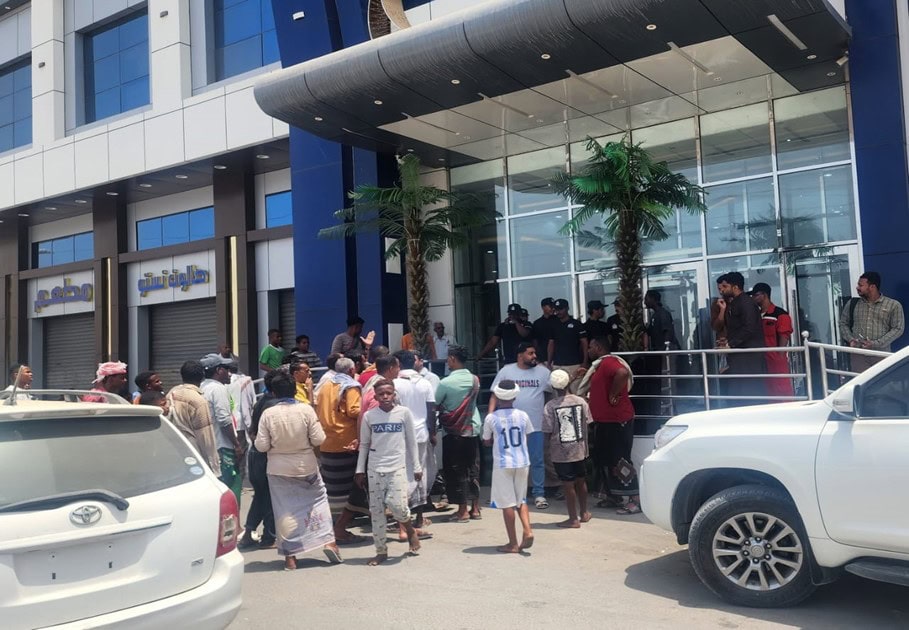
Protesters in Mukalla, Hadramout expel committee affiliated with so-called (Yemeni Parliament) from local hotel (photo: Local activists)
22-07-2025 at 9 PM Aden Time
|
|
Aden (South24 Center)
A parliamentary committee from Yemen’s defunct parliament faced sweeping public and official rejection during its visit to Mukalla, the capital of Hadramout governorate in South Yemen, on Monday, July 21. The delegation was compelled to leave the city under local pressure, signaling the widening gap between traditional legislative institutions and the changing political reality in the South.
The committee, formed by decree from Parliament Speaker Sultan Al-Barakani, arrived in Mukalla on an inspection mission related to allegations of corruption in resource management, according to official sources. However, the delegation was met with sharp criticism from local elites and citizens and ended up being trapped inside a hotel before leaving the city without completing its mission.
Local security authorities in Mukalla declined to provide protection for the delegation—reflecting the absence of de facto recognition of the Yemeni parliament’s authority in the governorate.
The Southern Transitional Council (STC) described the visit as “a violation of Southern will,” stressing that no parliamentary activity would be accepted without a clear political consensus.
Senior Southern figures stated that the parliament had lost legitimacy years ago and no longer reflects the aspirations of the southern public, which continues to demand self-determination and the restoration of the pre-unification state.
In a joint statement, STC offices in Hadramout and Shabwa labeled the visit “an attempt to bypass political realities,” warning that such moves risk fueling renewed tensions in the South.
Yemen’s parliament is one of the few institutions still standing from the pre-war era. Its constitutional mandate expired in 2009, and no elections have been held since 2003. The body is internally fragmented, with members divided between areas controlled by the internationally recognized government in Aden and those under the authority of the Houthi group in Sanaa.
The delegation also reportedly faced similar rejection in the governorates of Shabwa, Dhalea, Abyan, and Lahj—underscoring the growing isolation of state institutions associated with the unity-era political framework long dominated by northern elites.
In Dhalea, STC leaders described the visit as “a suspicious maneuver,” and called on residents to “reject any attempts to undermine the liberation and independence project.”
Southern activists argue that the parliament now serves as an outdated tool lacking public trust—especially amid deepening economic crises, deteriorating public services, and an absence of credible political solutions.
The parliament maintains only limited operational activity in Seiyun, in Hadramout Valley, where northern forces aligned with the Islah Party hold sway. Seiyun was the last location to host an official parliamentary session in 2019, following objections to holding the session in Aden.